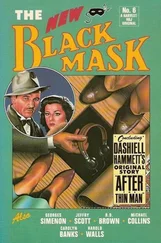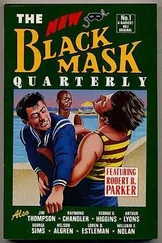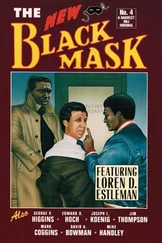He was as red as I was. “I’ll switch you out of there immediately,” he said.
JULY DAWNED with a sour flavor. The entire Camp facility seemed to groan in the heat, overtaxed. The phones stopped working. The washing machines broke, a horror show. Suddenly all the hair dryers disappeared. Two hundred women, no phones, no washing machines, no hair dryers-it was like Lord of the Flies on estrogen. I sure as hell wasn’t going to be Piggy.
To escape the Camp’s simmering tensions, I liked to sit under the row of pine trees overlooking the track and the valley beyond, especially at sunset. Now that I knew what the lake looked like, I would imagine diving in, deep under the water, and swimming away. I would strain my ears to catch the sound of the motorboats far below. It was such a pretty spot here, why did they have to ruin it with a prison? I missed Larry terribly on those evenings, wishing that I were with him.
I checked the callout every day to see if my work assignment had changed. After a week I learned that my attempt to escape the electric shop had been thwarted because rotten DeSimon had gone on vacation unannounced, and Tex wouldn’t transfer me out to construction until he returned. I couldn’t understand this at all.
But when I pressed him, sounding as desperate as I was, the big Texan put his hands up as if to say stop. “You’re going to have to trust me and be patient, Miss Kerman. I’ll get you out of there.”
· · ·
MIRACULOUSLY, MY transfer from electric to construction finally happened, popping up on the callout at the end of July. Tex had been as good as his word. I did a little victory dance in the Camp’s main hall.
My new coworkers included my buddy Allie B., the cheerful six-foot oddball from B Dorm, and Pennsatucky, who was in contention for white girl with the biggest mouth. The carpentry shop was largely made up of Spanish mamis, including Maria Carbon, the almost-catatonic girl I had greeted in Room 6 back in February. She had regained her equilibrium in the intervening months, and the difference between that terrified girl and this slightly macho, bravado-filled convict was striking. Everyone was welcoming to me, and there was no evidence of the downtrodden misery I was used to in electric. The construction and carpentry shops were housed together and smelled of wood and paint and sawdust. I now worked for Mr. King, the chain-smoking Marlboro Man.
I HAD a new neighbor in B Dorm, who I nicknamed Pom-Pom based on her hairdo. Pom-Pom was a bashful twenty-two-year-old who spent a lot of time sleeping and quickly got a rep for laziness. She probably slept so much because she was depressed, a normal enough response to prison. She had been assigned to work in the garage, where she pumped gas into the prison vehicles enthusiastically; she didn’t seem lazy to me. If you looked at her and smiled, she would cast her eyes away but smile her own shy smile.
One day in the dinner line Pom-Pom abruptly turned to me and began to talk. I barely knew her and assumed she must be speaking to someone else, her coworker Angel perhaps, who was standing on my other side. No, she was speaking to me, and with some intensity.
“Boss called me into his office today, and he was asking me if I’ve had any relatives here before.” Mr. Senecal was her boss in the garage. “So he was asking me, and it turns out my mother worked for him.”
I looked at Pom-Pom. At present we had three sets of sisters locked up in the Camp, and another neighbor’s mother had apparently been shipped out right before I arrived. At this point in my own prison stay, it was less surprising to me that she was a second-generation federal inmate than that she did not know her mom had worked in the garage.
“You didn’t know she worked in the garage?” I asked.
“No, I knew she was here, my aunt told me, but she never told me nothing about it.”
I had a terrible suspicion that Pom-Pom’s mother might be dead.
Angel, her coworker, was of course listening in and gently asked the question: “Where’s your mom?”
“I have no idea,” replied Pom-Pom.
I felt even worse, but I was still curious. “How did Senecal know?”
“He just guessed. He thought it was my sister, but he just guessed.”
“Do you look like your mom? He guessed from looking at you?”
“I guess so-he asked me, ‘Tall and skinny, right?’” Pom-Pom laughed. “He said he just had a feeling, so he asked me. Then he asked me what I was doing here.”
I wondered if the prison staff connected the miseries of their chosen profession with the miseries of their prisoners’ children. Did it trouble Mike Senecal to find Pom-Pom in Danbury, and was he waiting for her children to show up? Maybe if her mother had been put in treatment for her addictions (which were implicit) rather than in the garage in Danbury, Pom-Pom wouldn’t be standing in his office today.
“What did Senecal say about your mom?”
“He said she never gave him any trouble.”
I didn’t much care for Pom-Pom’s boss, but I liked to hang out in the garage. I stopped in every morning to get the white construction pickup and shoot the breeze with the gals who worked there pumping gas and fixing trucks. There was a debate going on about what was the song of the summer.
Angel said it was the big crossover reggaeton hit with Daddy Yankee; I didn’t know the name was “Oye Mi Canto,” but we could all sing the refrain:
Boricua, Morena, Dominicano, Colombiano,
Boricua, Morena, Cubano, Mexicano
Oye Mi Canto
Bonnie snorted. “Y’all are crazy,” she said. “It’s Fat Joe!”
We all replied, “Lean Back,” and dropped one shoulder back in smooth unison.
Kenyatta said, “Well, I don’t like her, but that song by Christina Milian-‘Pop, Pop, Pop That Thang’? That song is blowing up.”
This made me giggle. In yoga class the other day Yoga Janet had been trying to get us to loosen up our hips. “Okay, everyone, wiggle your hips. Shake them out. Now rotate them, circle left… now right. Okay, now I want you to pop your hips forward, your pelvis, in a smooth motion. I want you to Pop That Thing!” Sister Platte had been bemused: “Pop that thing?” Camila and I had died.
Pom-Pom spoke up. “I don’t know where you think y’all are at, but there’s just one song this summer. And that’s ‘Locked Up.’ Look around you! End of discussion.”
We had to admit, she was dead on. All summer long, anywhere there was a radio playing, you could hear the almost eerie, plaintive voice of Akon, a Senegalese rapper, singing about prison.
Can’t wait to get out and move forward with my life,
Got a family that loves me and wants me to do right,
But instead I’m here locked up.
Even if the song had not been a huge hit on the outs, it had to be the guiding anthem in a place like the Camp; you heard women who weren’t even hip-hop fans humming it tunelessly under their breath as they folded laundry: “‘I’m locked up, they won’t let me out, nooooo, they won’t let me out. I’m locked up.’”

I was a big fan of my coworker Allie B. She made me laugh all the time. She seemed lighthearted-that is, when she wasn’t pissed off about something; her pendulum swung a little wildly. She didn’t have the heavy hallmarks of incarceration on her, even though this was not her first time down-in fact she was a violator, which made sense because she was a junkie. But she wasn’t locked up for a drug crime, so she wasn’t getting any kind of treatment for her addictions.
I would ask her, “C’mon, you’re clean, and you’ve been clean for the whole time you’ve been locked up, so why go back to it?”
Читать дальше













